AEO vs AIO vs LLM SEO: What's The Difference Between Them?
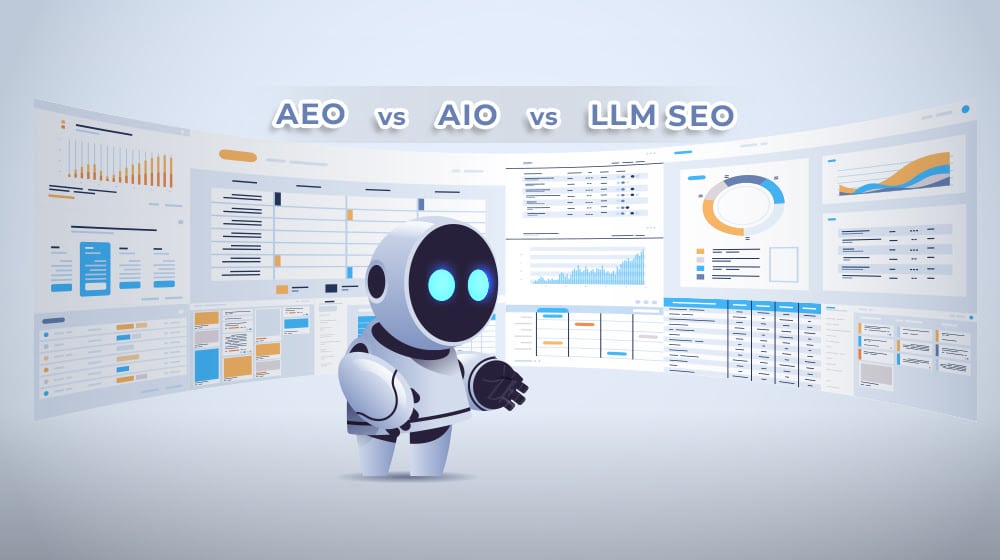
If you've been paying attention to marketing circles over the last year or so, you've probably seen a spike in people talking about alternatives to SEO. The term they use tends to vary; some use AEO, some AIO, some GEO, some AIOO, some CO… the list goes on.
What are they, are there differences between them, and are they significantly different from SEO?
What Are the Differences Between AEO/AIO/LLM SEO/GEO?
Before defining what all of these acronyms mean, I can address one simple question: are there differences between them?
The answer is… yes and no. Helpful, right?
There are a few differences. For example:
- The acronyms use different letters.
- Different people use different acronyms.
- The specific form of what you're optimizing is very slightly different.
Overall, though? There's not really a difference.
AIO stands for Artificial Intelligence Optimization. AEO stands for Answer Engine Optimization. LLM SEO is Large Language Model Search Engine Optimization and tends to refer to most of the others. SGEO is Search Generative Experience Optimization. CO is Citation Optimization. The list keeps getting longer.
All of these fall under one broad heading: AO, or Answer Optimization. Whether those answers are being provided by Google's AI Overview, Perplexity, ChatGPT Answers, or some other AI system entirely, it's all the same.

Why are there so many acronyms? Two reasons.
The first is that people try to find a term to use for a specific subset of optimization. People who want to optimize specifically for Google's AI Overview want to call it something different than the people who want to optimize for ChatGPT's Answers, even though 99.99% of the techniques you need to use for either one are identical.
It's pretty similar to how people will come up with different niche terms for SEO, like Press Release SEO, Infographic SEO, Outreach SEO, or Influencer SEO. You might notice how none of those have caught on. Well, there's a reason for that.
The second reason there are so many acronyms is a little more self-serving. Various AI marketing influencers are trying to leave their mark. How often have you seen a term in marketing and seen someone attribute it to the person who first said it or first popularized it? Being "the person who coined Term_Widely_Used_Today" is a bit of clout they're all chasing.
Now, I did say that there are some minor differences. What I mean is that you might change a little about your metadata because the snippet in Google's AI Overview citations might display differently than it would on another venue, so front-loading a relevant keyword might be more valuable there. Or, another LLM might weigh social media shares on your content more heavily, so you would want to promote your site more on, say, LinkedIn than you would for normal SEO.
There is essentially nothing new or unique about LLM SEO compared to normal SEO; it's just a matter of where you put your emphasis and your budget.
What is AO?
When people use AI systems, they do so for a few different purposes.
For we marketers, most of those purposes aren't relevant. None of us need to care about the people using ChatGPT as a therapist (even if it's terrifying on a social level), or the people using Character.AI to roleplay having lunch with Superman (or, let's be real, much less savory purposes), or the people using it to write their homework for them.
What we care about are the people who are using it like a source of information. The people who go to ChatGPT to ask a question that they would normally type into Google, which would lead them to a Wikipedia article, an explainer video, or a text resource.

While the use of LLMs is expanding (for example, Google now shows it in site searches), it began and propagated from informational keyword searches. Ahrefs did a study not too long ago and found that the AI Overviews were 99.1% from informational queries.
In short, it's people who are looking for answers. The AI shows them answers, ideally with citations, to minimize how much error is introduced through hallucinations (and to credit where the information is being taken from). To get your site to be one of the citations, you want to optimize. Hence, Answer Optimization.
Every other term cascades from this. LLM SEO? Optimization for the LLMS. GEO, a Generative Experience Optimization? The generative experience is providing answers. And on and on.
How Does AO Differ from SEO?
While there are a few minute differences between different kinds of Answer Optimization, the big question is how much AO differs from SEO. This is where there are some more tangible differences, though definitely not as many as the AI influencers want you to think.
They mostly use Bing instead of Google.
The biggest one here is that almost all of the current generation of LLMs are either developed by Microsoft (Copilot), have a partnership with Microsoft (ChatGPT), or are derived from one of those AIs. Microsoft has its own search engine, so of course, part of that partnership is deeper integration and access to algorithms and results.
That means they pull their data largely from Bing's search results. Since Bing SEO is somewhat different from Google SEO, it means that AO tends to have different areas of emphasis and different search factors to focus on. While there's significant overlap because there are only so many sources of data and information that can be used to rank sites, they aren't 1:1 identical.
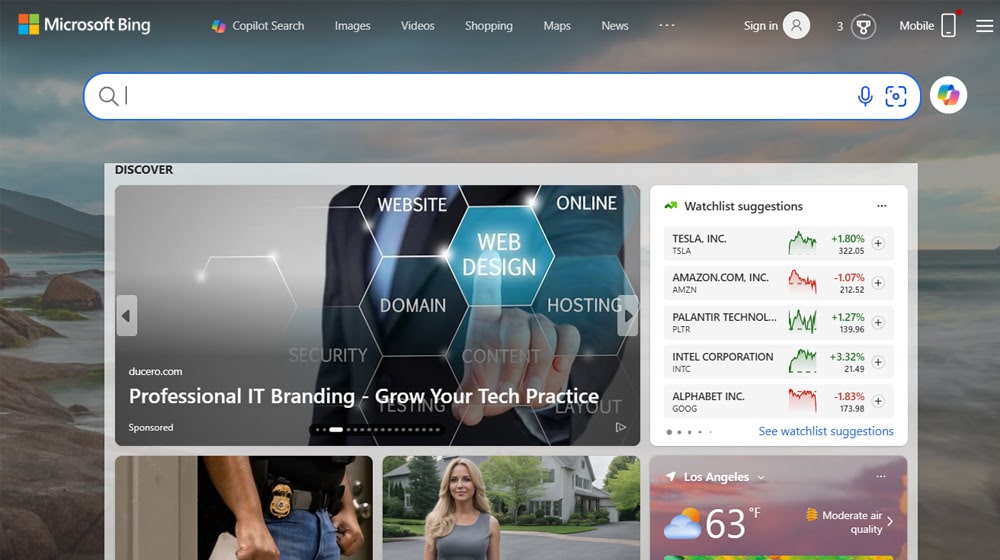
Not all of the LLMs scrape Bing for their real-time information and answers, though. Obviously, Google's AI Overviews and Gemini will use Google's data. Others, like Perplexity, use a mix of first-tier information from both Google and Bing, as well as second-tier references from other LLMs like ChatGPT.
In broad strokes, though, more LLMs use Bing than other sources, so Bing SEO tends to come out ahead in this area.
Different specific LLMs have different weights.
Another difference is that the different LLMs put different weights on different sources of data. This is all a difference both in the way they're trained and the way they process prompts, along with AI safeguards and other guardrails that prevent them from giving truly damaging advice.
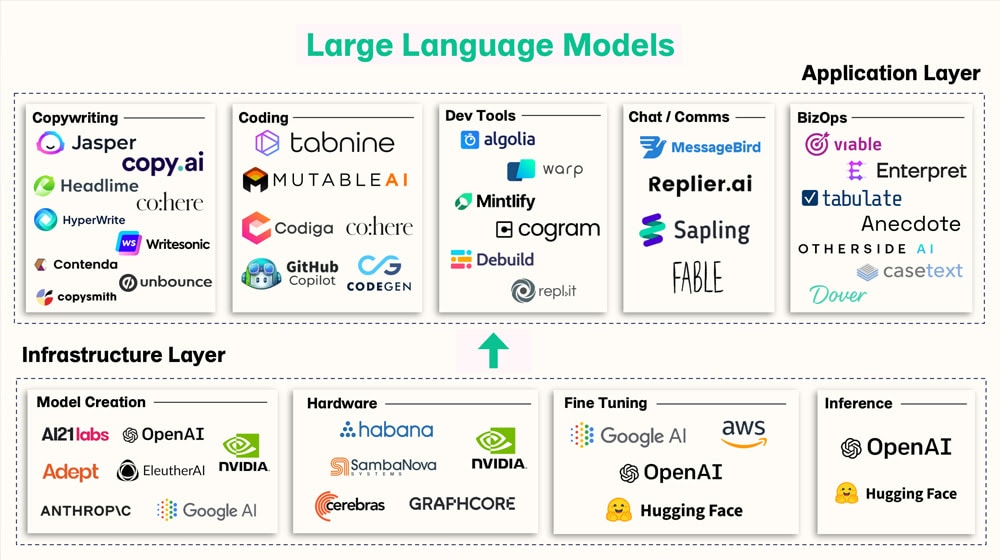
Image source: https://cdn.labellerr.com/Foundation%20Models/Introduction%20to%20LLM/example%20of%20LLMs.webp
This is a big part of why you get different answers when using different LLMs. It's not just that they pick different sources to promote; it's that they have different underlying math to push them in different directions. Sometimes, it's minor, sometimes, a large enough site being an authority pushes out competition regardless, and sometimes, it's more significant.
They're rapidly evolving.
One of the biggest differences is simply in how rapidly the industry is moving. SEO, despite the frequent changes when Google makes an algorithm update, is still relatively calcified. The techniques and factors you need to use to be good at SEO with Google haven't really changed all that much since 2011, and the changes that have been made tend to be in the weighting more than in the factors themselves. It's relatively rare that something new hits the stage, like when Schema was invented or when Google started tracking and measuring Core Web Vitals.
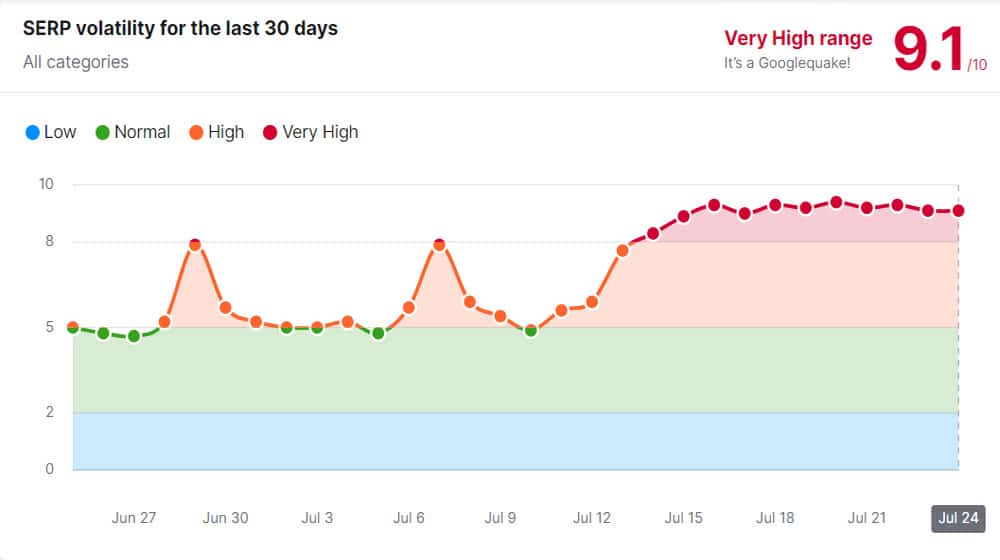
Image source: https://images.surferseo.art/c7a69bbf-d683-4b5b-823c-6752886566c0.png
LLMs, meanwhile, are changing constantly. It's a new industry with a bunch of major players throwing unconscionable amounts of money and resources at trying to figure out the next big thing. Not only does this mean that different LLMs and systems spring up rapidly (some of which are shells for the big names, and others are more unique), but it also means that even individual version updates of an LLM can be vastly different.
Is AI SEO Killing Traditional SEO?
I cover this topic in greater detail in my post on why AIO/AO and SEO are basically the same thing, but I'll summarize it here.
AI relies on the human production of content. LLMs need content to train, and they need fresh content to provide fresh results.
This isn't a problem they have yet been able to surmount. It's been proven that AI output gets worse – to the point of collapse – when their input is AI-generated output.
This is, in a way, an impending apocalypse for AI. More and more businesses, more and more people, authors self-publishing books, bloggers, social media accounts, and media everywhere are using AI to generate their content. AI indiscriminately hoovers this all up to add it to its own training data and, in doing so, poisons itself.
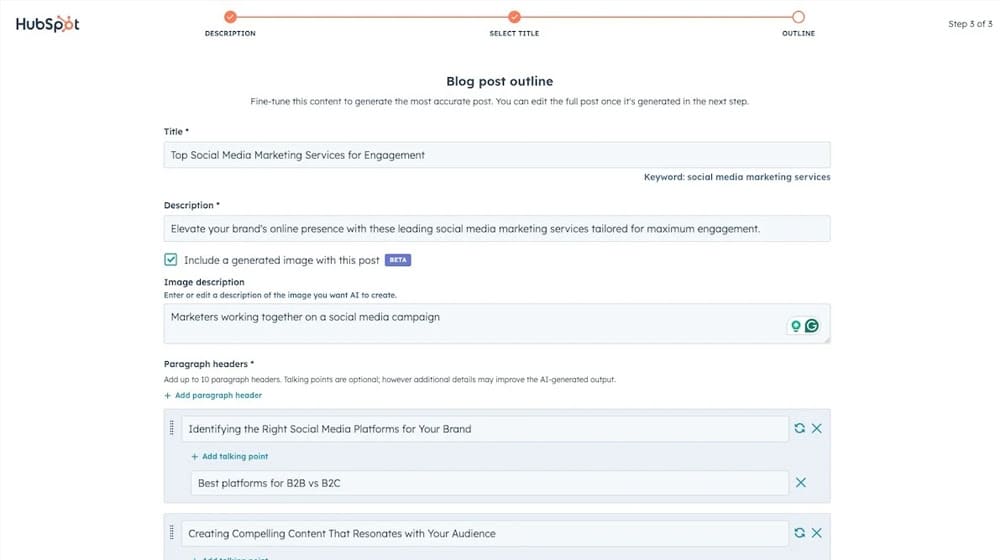
Image source: https://www.hubspot.com/hubfs/writers%20block%20copy.jpg
Yet the AI is also putting those human creators out of work. Some directly, like the writers who lose their jobs to LLMs. Some indirectly, like the sites that can't sustain themselves after the loss of traffic caused by LLMs presenting the answers instead of forwarding traffic.
AI output goes up, human output goes down, and AI's slurp up the soup and choke.
I don't think AI is killing traditional SEO, especially as AI gets integrated into those search results. I think it may redefine some elements of SEO and place greater emphasis on some metrics here and there. How it all shakes out over the next few years, though, remains up in the air.
Should You Pay Attention to LLM SEO?
Does any of this matter?
Well, sure. Millions of people are using LLMs every day, and even if only a fraction of those people are using them for the kinds of web-based informational queries that are relevant to marketing, that still has an impact.
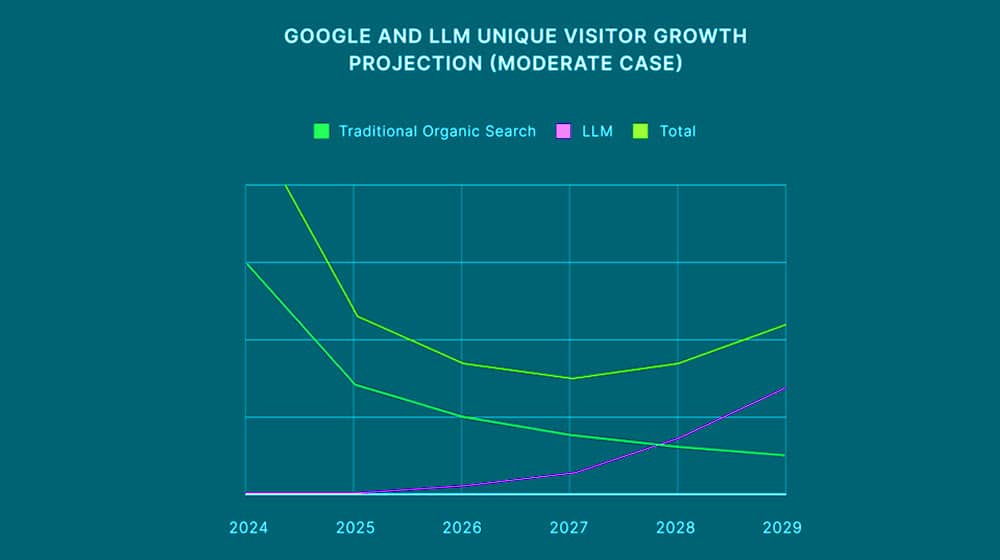
Image source: https://api.backlinko.com/app/uploads/2025/06/google-and-llm-unique-visitor-growth-projection-moderate-case-960x786.webp
It's definitely something worth paying attention to. Is it worth abandoning traditional SEO for? Absolutely not. Does it require a bit of adjustment and some emphasis on SEO techniques you previously ignored? Of course. Is everything I've said here going to be completely different in six months? Who knows!
The more things change, the more they stay the same. At the end of the day, there will always be people running websites to provide information, and there will always be mechanisms for surfacing, evaluating, and presenting that information. Whether that's search results directly, curated resources, AI output, or something else entirely. That's just evolution.



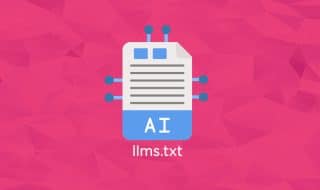

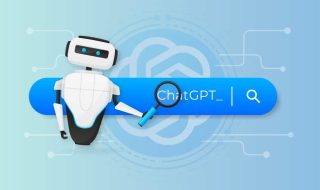


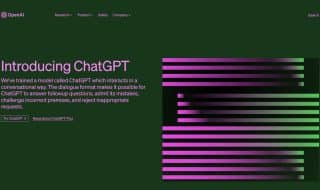

Comments